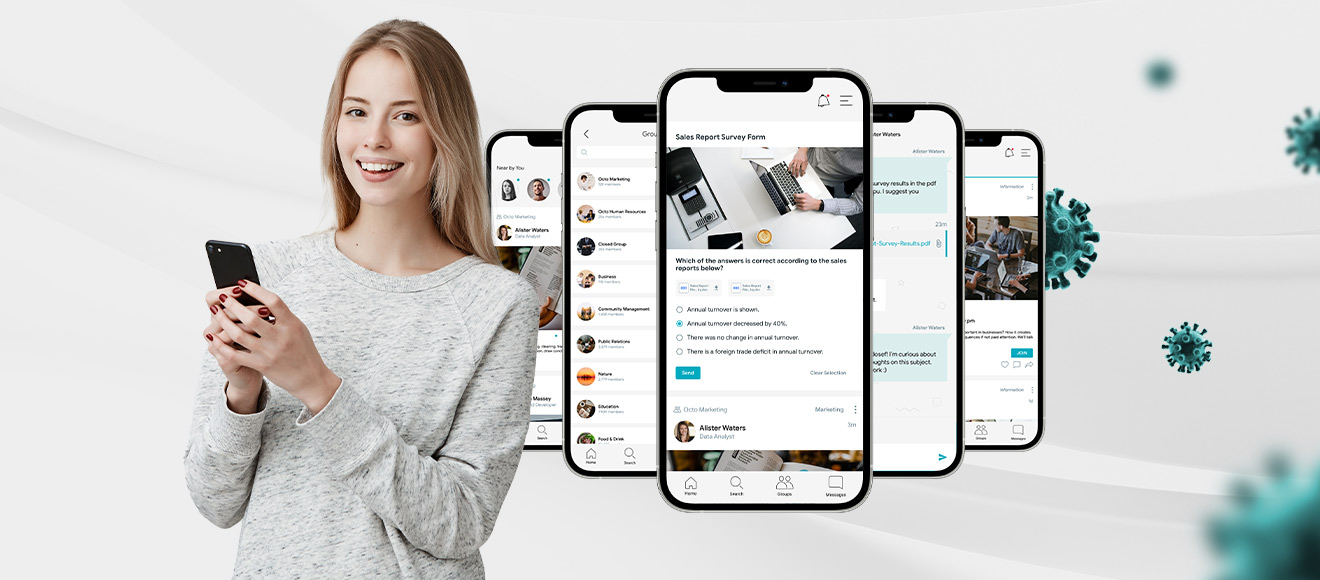The Impact of COVID-19 on socialization at work
COVID-19 profoundly affects almost all aspects of economic and social life globally. Governments have closed borders, banned mass gatherings and enforced social distancing, creating a new normal for businesses and citizens. Measures to protect public health have threatened the global economy, requiring economic stimulus in many countries and restructuring the role of business in society.
Socialization in Corporate Companies Changed Long Before COVID-19
COVID-19 is forcing companies to shorten working time and eliminate meetings. They adjust their workdays across different timezones and according to the needs of employees who are faced with responsibilities such as childcare. Some even continue to work entirely from home.
Communication Among Employees Declining
Employees are spending less time socializing with colleagues, but businesses are offering virtual events as more employees work remotely, according to new data.
Office dress codes, commuting and face-to-face meetings have been changed or eliminated in most of the companies since COVID-19 in March 2020.
Businesses are now employing many of their employees remotely, complying with the COVID-19 business environment requirements.
Almost half (43%) of employees have already spent most of their time working remotely in the last 30 days.
The changing workplace environment can have an impact on the team culture, which represents the values, attitudes and behaviors of the employees who make up the team.
Since the declaration of COVID-19 as a “pandemic”, 301 employees were surveyed under the leadership of clutch.co to learn about their company's culture. In general, companies are aware of the challenges COVID-19 and remote working poses to team culture. It was concluded that employees are less socializing with their colleagues and an increasing number of companies are hosting virtual social events.
Most importantly, we found that most employees have similar access to their supervisors and managers, largely through the capabilities of technology.
Although the internal communication, which has been greatly affected by the pandemic, will not replace the old habits, enterprise social networks such as Octo are among the most effective solutions that can be applied. In this way, employees can easily communicate with each other, with their managers, and even enable various in-company virtual events to take place.
Since the declaration of COVID-19 as a pandemic, 63% of employees have spent less time socializing with colleagues, suggesting that companies need to find ways for employees to socialize remotely.
35% of companies did not hold a virtual team culture event during the COVID-19 pandemic, but experts believe more companies will implement it as remote work becomes the norm.
52% of employees say their manager's availability remains the same as before the pandemic, proposing that companies are committed to maintaining the same relationship between managers and employees.
26% of companies gave their employees greater access to communication technology during the COVID-19 pandemic, indicating that companies see employee communication as an important factor of team culture.
Employees Now Spend Less Time Socializing with Colleagues
As remote work becomes the standard, companies will have to plan for employees to spend more time away from their colleagues.
According to experts, the decline in employee socialization makes sense: When working remotely, you unfortunately don't have the option to have a quick chat with your co-workers at the coffee machine.
Without regular office calls, companies are trying to offer people new opportunities to socialize during the workday.
Virtual Events Are Increasing to Increase Team Motivation
Employees value the opportunity to socialize with colleagues and companies will likely provide more opportunities to do so as the COVID-19 pandemic continues.
Currently, about a third (35%) of companies do not host virtual social events. Experts believe that as businesses become more accustomed to working remotely, they will organize more virtual motivational hours, professional development sessions and meals for their employees.
Other virtual events hosted by businesses include:
• Professional development sessions (19%)
• Happy hour (13%)
• Activities and games (9%)
• Meals (5%)
Managers Still Available During COVID-19
Work environments may have changed, but most employees have not lost access to their managers.
More than half (52%) of employees say their direct manager's eligibility hasn't changed during the COVID-19 process.
Despite drastic changes in the way employees work, only 19% of employees say their managers are less available than before the COVID-19 pandemic.
For companies, making sure employees have access to their managers while working from home is critical to maintaining the company culture.






